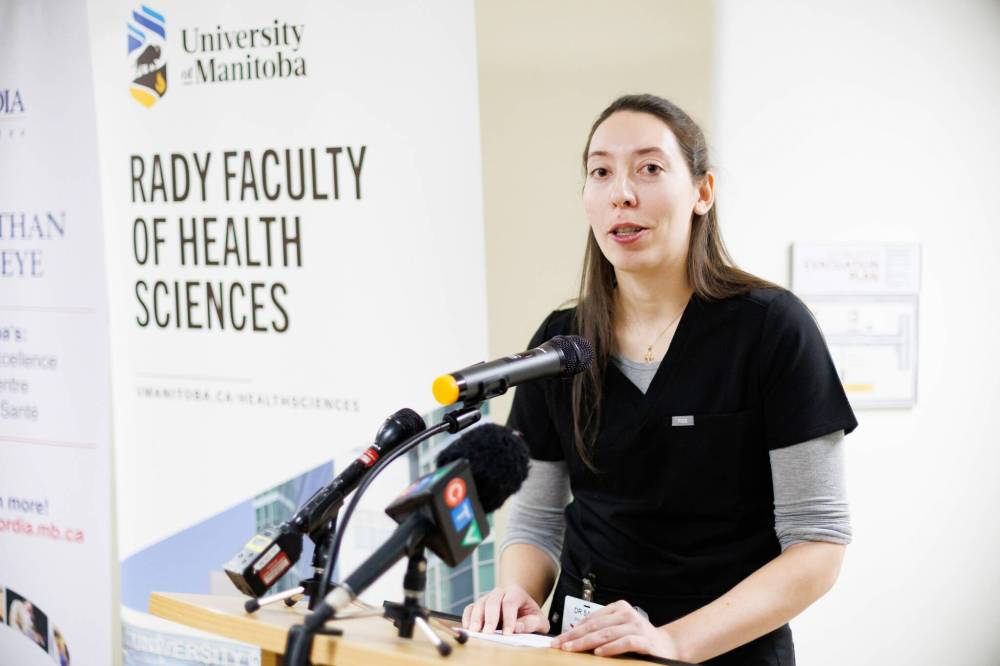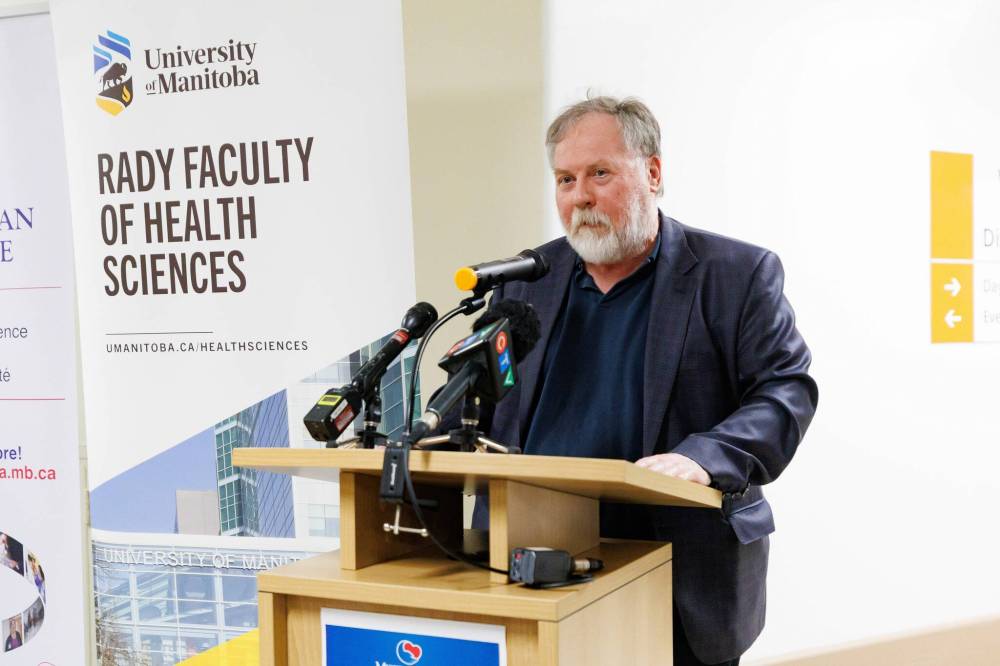A good night’s rest will be within reach for more Manitobans, thanks to a new fellowship program that will recruit and train doctors who specialize in sleep disorders.
While sleep-disorder education has long been a part of the University of Manitoba’s Max Rady College of Medicine, the university’s respirology section is now accredited by the Royal College of Physicians and Surgeons of Canada, allowing it to offer certification in the sub-specialty of sleep medicine.
The fellowship will offer that certification and take on one physician every year.
The U of M is one of only six universities in the country with the accreditation — and, hopefully, a tool to recruit doctors who will then practise in Manitoba, sleep specialist Dr. Nancy Porhownik said.

MIKE DEAL / FREE PRESS
“As our population gets larger, and our population gets older, the need for investigations and management of sleeping disorders is increasing in Manitoba,” Dr. Nancy Porhownik said.
“Sleep doctors are really necessary to interpret sleep investigations, but also to provide the necessary care that goes along with sleep-medicine testing. The training program also makes us competitive in recruiting sleep-medicine specialists from elsewhere,” she said at a news conference Tuesday. “Academic sleep doctors across the country are in high demand.”
In Manitoba, there are six full-time and one part-time physician at the Sleep Disorder Centre in Misericordia Health Centre who treat upwards of 10,000 patients every year.
“As our population gets larger, and our population gets older, the need for investigations and management of sleeping disorders is increasing in Manitoba,” Porhownik said.
“It’s part of why we’ve been working at this for a while, it’s taken us probably about two years to get this training program in place, really looking ahead to try to meet those service needs that Manitobans have.”
Sleep medicine is wide-ranging and used to treat myriad issues, including insomnia, movement disorders and breathing issues, such as sleep apnea and narcolepsy.
The first fellow of the new program joined in January. Dr. Sarah Jane Sass, a physician from Ontario, said she plans to stay in Winnipeg after finishing the program.

MIKE DEAL / FREE PRESS
Dr. Sarah Jane Sass is the first fellow of the new program.
“I look forward to getting the education needed through this new accredited program, which will allow me to contribute, to serve and, hopefully, make a little difference in the Manitoban communities that I now call, and I’m proud to call, my home,” she said.
Funding for the fellowship comes from the university’s faculty development fund, which is used to train professionals referred to Manitoba.
The Sleep Disorder Centre hosts more than 2,600 sleep studies on-site and roughly 2,200 others with patients at home. One of them was Charles Adler, whose columns appear in the Free Press. He spoke at Tuesday’s news conference about visiting the clinic for extreme headaches, which were later diagnosed as a sleep disorder.

MIKE DEAL / FREE PRESS
Charles Adler called the help he received from the Sleep Disorder Centre “the most emotional experience of my life.”
“The day after the test, after being hooked up to all sorts of wires and machines… I had no idea before I entered the (doctor’s) office when I was just sitting in the waiting room, that the horrific noises that were coming out of the office weren’t an animal that had just been shot; they were yours truly,” he said.”
“It was audio of yours truly trying to survive three or four hours of sleep.”
He called the help he received from the clinic “the most emotional experience of my life.”
“There was no way that I could have continued in my career, there’s no way I could have continued in my life,” he said. “This sleep clinic and everything that’s being said today is all about saving lives.”
malak.abas@freepress.mb.ca
